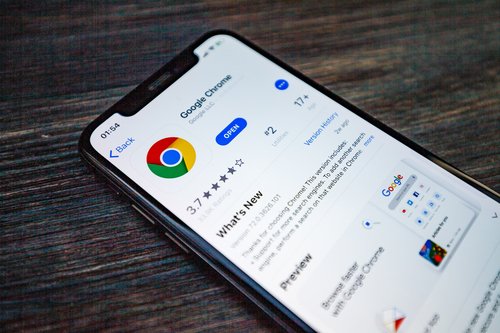Google wants to change the way cookies work

Google controls the way most of the world surfs the internet, with its Chrome browser accounting for more than half the global market. Now, it’s planning to get rid of the way companies and advertisers track Chrome’s millions of users.
In a blog post Tuesday, Chrome’s director of engineering, Justin Schuh, said the company intends to phase out support for third-party cookies “within two years.”
Cookies allow websites to log your activity, and third-party cookies give that permission to sites other than the ones you’re on. Getting rid of them will help internet users better protect their privacy, Schuh said.
“Users are demanding greater privacy — including transparency, choice and control over how their data is used — and it’s clear the web ecosystem needs to evolve to meet these increasing demands,” he added.
Most other popular browsers, including Apple’s Safari and Mozilla Firefox, already impose stricter restrictions on internet tracking, and Google’s announcement came a day before Microsoft debuted its new Edge browser, which is built on Chrome’s code but with greater restrictions on cookies.
Schuh criticized the approach some of Chrome’s competitors have deployed.
“Some browsers have reacted to these concerns by blocking third-party cookies, but we believe this has unintended consequences that can negatively impact both users and the web ecosystem,” he said, adding that it could promote more “opaque” and “invasive” tracking techniques.
The initiative to remove cookies is part of Google’s effort to create a set of open standards for digital tracking it first announced last August, dubbed Privacy Sandbox. The aim of the project, it said at the time, is to improve user privacy while also protecting the businesses of publishers and advertisers.
“Blocking cookies without another way to deliver relevant ads significantly reduces publishers’ primary means of funding, which jeopardizes the future of the vibrant web,” Schuch wrote at the time.
Schuh now says Google is confident it can “sustain a healthy, ad-supported web in a way that will render third-party cookies obsolete.”
But experts say Google’s approach — which will start with greater user control and more security for third-party cookies — may also be influenced by its own digital advertising, which accounts for the vast majority of the company’s revenue.
“The other browser vendors seem motivated to actually limit third-party tracking given increasing consumer frustration. So many ads these days are retargeted based on visits to other sites, so people are increasingly aware that their browsing is tracked all over the web (and elsewhere),” said Justin Brookman, director of consumer privacy and technology policy at Consumer Reports.
“Google on the other hand seems more interested in preserving third-party tracking — but because cookies are fragile and under attack elsewhere, Google is exploring other tracking methods in the browser,” Brookman added.
The tech giant is also under increased scrutiny from regulators in the United States and elsewhere over its dominance of the internet at large, and potential changes to browsing will likely be no different. Chrome accounts for more than 60% of the global web browser market, according to Statista, with second-placed Safari at around 16%.
And there are fears that Google could use its size and dominance to keep collecting data even without cookies and stifle competition in the process.
A Google spokesperson told CNN Business that Chrome calls on the entire ecosystem to engage with its proposals, reiterating that it will only phase out third-party cookies once the needs of users, advertisers and publishers are met. Google also relies on third-party cookies for ads it serves on other sites, which would be affected if Chrome were to stop supporting them, the spokesperson added.
While Google hasn’t yet specified what it plans to replace cookies with, the amount of user data it collects anyway means it might not matter.
“Google and other leading data marketing companies no longer require consuming vast number of personal data ‘cookies’ to track and target us,” said Jeff Chester, executive director of the Center for Digital Democracy, a tech privacy research and advocacy group. “They have invested in technologies that enable them to gather information on people and then make accurate predictions about how they will respond.




